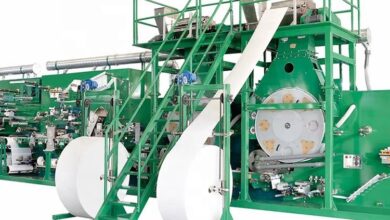Understanding the Synergy between Enterprise ERP and CRM Systems
In today’s dynamic business landscape, where competitiveness is the norm and customer expectations continue to evolve, enterprises must leverage cutting-edge technologies to stay ahead. Among these technologies, Enterprise Resource Planning (ERP) and Customer Relationship Management (CRM) systems stand out as indispensable tools for streamlining operations, enhancing productivity, and fostering customer-centric strategies. While both ERP and CRM systems serve distinct purposes, their integration offers a powerful synergy that drives organizational growth and success.
The Foundation of Enterprise Efficiency: ERP Systems
At the heart of many successful enterprises lies an ERP system—a comprehensive suite of integrated applications designed to manage core business processes efficiently. ERP systems typically encompass modules for finance, human resources, supply chain management, manufacturing, and more. By centralizing data and automating workflows across various departments, ERP systems eliminate silos, reduce manual errors, and provide real-time visibility into critical business operations.
Key features of ERP systems include:
Data Integration: ERP systems consolidate data from different departments, ensuring consistency and accuracy across the organization. This integrated approach facilitates seamless communication and collaboration, enabling stakeholders to make informed decisions based on real-time insights.
Process Automation: Automation is a cornerstone of enterprise ERP and CRM Systems, streamlining repetitive tasks and workflows to enhance operational efficiency. Whether it’s automating financial transactions, inventory management, or order processing, ERP solutions help minimize human intervention and optimize resource utilization.
Scalability: As businesses grow, their operational requirements evolve. ERP systems are designed to scale alongside the organization, accommodating increased transaction volumes, additional users, and new business units without compromising performance or functionality.
Regulatory Compliance: Compliance with industry regulations and standards is paramount for businesses across sectors. ERP systems often include features and controls to ensure regulatory compliance, such as built-in audit trails, data encryption, and role-based access controls.
Elevating Customer Engagement: CRM Systems
While ERP systems focus on internal processes and resource management, Customer Relationship Management (CRM) systems are dedicated to enhancing interactions with customers and prospects. CRM software enables businesses to build and nurture customer relationships by centralizing customer data, automating sales and marketing activities, and providing insights to drive personalized engagement.
Key features of CRM systems include:
360-Degree View of Customers: CRM systems aggregate customer data from various touchpoints, including sales, marketing, customer service, and social media. This holistic view empowers businesses to understand customer preferences, anticipate needs, and deliver tailored experiences across the entire customer journey.
Sales and Marketing Automation: CRM platforms streamline sales and marketing processes through automation, from lead generation and prospecting to nurturing and conversion. By automating repetitive tasks, such as email campaigns, lead scoring, and pipeline management, CRM systems free up sales and marketing teams to focus on high-value activities and relationship-building.
Customer Service Management: Exceptional customer service is a key differentiator in today’s competitive market. CRM systems equip businesses with tools to deliver prompt, personalized support, including ticketing systems, self-service portals, and knowledge bases. By resolving inquiries efficiently and proactively addressing customer issues, organizations can enhance satisfaction and loyalty.
Analytics and Reporting: Data-driven insights are invaluable for optimizing sales and marketing strategies. CRM systems offer robust analytics and reporting capabilities, enabling businesses to track key performance metrics, measure campaign effectiveness, and identify trends and opportunities for improvement.
Unlocking Synergy through Integration
While ERP and CRM systems serve distinct functions, their integration is where the true power lies. By seamlessly connecting ERP and CRM systems, organizations can synchronize critical business processes, eliminate data silos, and deliver a unified experience for both internal stakeholders and customers.
Streamlined Operations and Enhanced Efficiency
Integration between ERP and CRM systems enables seamless data exchange between front-end customer-facing processes and back-end operational functions. For example, when a sales representative closes a deal in the CRM system, the integrated ERP system can automatically generate an order, update inventory levels, and initiate the invoicing process—all without manual intervention. This streamlines operations, minimizes errors, and accelerates order fulfillment, ultimately enhancing efficiency and customer satisfaction.
Holistic Customer Insights and Personalized Engagement
By integrating ERP and CRM data, organizations gain a comprehensive view of customers that extends beyond transactional history to encompass broader insights such as purchasing patterns, preferences, and profitability. Armed with this holistic understanding, businesses can tailor their products, services, and marketing efforts to meet individual customer needs more effectively. For example, a retailer can leverage ERP data on inventory levels and purchase history to personalize promotions and recommendations in the CRM system, driving higher conversion rates and customer loyalty.
Conclusion
In today’s interconnected business environment, ERP and CRM systems are indispensable tools for driving operational excellence and fostering customer-centric strategies. While ERP systems optimize internal processes and resource management, CRM systems elevate customer engagement and relationship-building efforts. By integrating these two pillars of enterprise technology, organizations can unlock synergies that enhance efficiency, agility, and competitiveness. Whether streamlining operations, personalizing customer experiences, or driving growth, the synergy between ERP and CRM systems is a catalyst for sustained success in the digital age.



